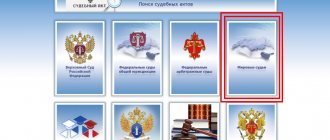Not everyone understands what amnesty is and how it differs from pardon. The main differences regulated by the Criminal Code:
- the State Duma grants amnesty, the president announces pardon;
- an amnesty is carried out in relation to an indefinite number of persons, a pardon is carried out in relation to one specific person.
Due to the incorrect interpretation of this concept, funny situations arise. People under threat of prosecution are attacking lawyers with demands to “apply for amnesty.” Let us explain - this is impossible. No one except the State Duma can “apply” this judicial act. But this does not mean that you will not be helped. Practicing lawyers will use other, no less effective mechanisms to ease your fate. The main thing is not to hesitate and contact a reliable legal organization.
Do you want to figure it out, but don’t have time to read the article? Lawyers will help
Entrust the task to professionals. Lawyers will complete the order at the cost you specify
69 lawyers on RTIGER.com can help with this issue
Solve the issue >
Who is declaring an amnesty and why?
The interpretation of the concept of “amnesty” is in Art. 84 of the Criminal Code of the Russian Federation is a mitigation or reduction of the sentence. When investigating a crime, the perpetrator is released from criminal liability. If the prisoner has already served his sentence, the criminal record can be expunged.
The Constitution of the Russian Federation classifies the announcement of an amnesty as one of the powers of the State Duma - this is Article 103. The declared purpose of the amnesty is the state’s showing of mercy towards some “fallen” members of society. However, its other goals are no less important:
- achieving civil reconciliation and harmony is the political motive for amnesty;
- economic - unloading of penitentiary institutions.
As a rule, amnesty is timed to coincide with significant events of the state. The last amnesty in the Russian Federation was announced in 2015 - in honor of the 70th anniversary of Victory in the Second World War (Resolution of the State Duma of the Federal Assembly of the Russian Federation dated April 24, 2015 No. 6576).
general information
There can be many reasons for the state to show mercy and loyalty towards its citizens, and if for those who are not limited by the barbed wire perimeter, the celebration of the next national anniversary is accompanied by public festivities and days off, then for the prisoner, the best gift is freedom. Such arguments more than once became the reason for declaring an amnesty timed to coincide with the accession to the throne of a new ruler in Tsarist Rus' or victory in another war, both in the Middle Ages and in the modern world.
The modern penitentiary system periodically experiences difficulties with overcrowding in places where punishment is carried out, which is becoming customary to solve by declaring an amnesty to the inhabitants of colonies united by a certain social status and the severity of the offense committed. The forgiveness announced by the state is impersonal and covers convicts united by a number of characteristic characteristics, whom legislators tend to consider posing a lesser threat to society than everyone else.
So, let's find out what amnesty for criminal cases is in the laws of Russia.
Lawyers talk in detail about the concept of amnesty in the video below:
Concept and legal nature
An act of amnesty is considered a document issued by the State Duma along with comments to it and containing a decision on the application of measures to get rid of criminal punishment or mitigate it in relation to a numerically unlimited contingent of defendants and alienated persons corresponding to a specific disposition. In other words, the act of amnesty does not reflect specific individuals, but rather a list of characteristics that a subject held incommunicado or subject to trial must possess in order to qualify for the measures set forth in this document.
The legal nature of such a document is complex, combining a civil legal basis, as it is issued by the main legislative body, and a criminal procedural basis, extending its effect to those convicted under the Criminal Code of the Russian Federation and amnestied under it. However, with strict adherence to the formal approach, the amnesty act does not relate to the document flow of criminal law and, as a result, can be subsequently adjusted, even to the detriment of the subjects subject to forgiveness.
The text of the amnesty act contains instructions to the justice authorities, declaring the adoption of decisions in relation to an unlimited number of convicts or accused, who are subject to single and complex application of the following manifestations of oblivion on the part of the state:
- Exemption from prosecution for a committed misdemeanor, available until a verdict is passed and only with the consent of the convicted person. Amnesty is not the same as rehabilitation and consent to its use must be balanced, since it implies the presence of a criminal record, in contrast to an acquittal by a judicial authority in this case.
- For those serving a real sentence in isolation from society, it can be replaced with a more loyal form of retribution, reduced in duration or canceled, or the alternative may be getting rid of additional punishment, since their joint repayment is not provided for by the Criminal Code of the Russian Federation.
- Those who have already received retribution for their offense and served the sentence prescribed by the sentence may have their criminal record expunged, which imposes certain restrictions on the future fate of the person.
- Those brought to administrative responsibility, but who have not yet fulfilled the legal requirements of supervisory or fiscal authorities, are relieved of the need to fulfill them.
The legal regulation of amnesty in criminal law and its features are discussed below.
Features and Signs
The specifics of a particular act of amnesty are determined by the basis for its issuance, which may be motivated by one of the following purposes:
- easing the fate of those convicted, the severity of the consequences of their actions is small;
- ideological reconciliation of communities in conflict with the state;
- resolution of interethnic conflict or its consequences;
- achieving improved attitudes of citizens towards government authorities;
- reducing the costs of maintaining institutions of the penitentiary system;
- solving the problem of overcrowded isolation places and unhealthy climate of colonies.
Depending on the purpose pursued by a certain act of amnesty, the boundaries of the circle of forgiven subjects and the nature of the filter that sifts out those whose crimes are subject to oblivion are determined from others.
Who is eligible for amnesty?
As already mentioned, amnesty does not have an individual character. Amnesty is given to groups of people who are united on any basis. These may be persons involved in one criminal case, convicted under certain specific articles, or prisoners belonging to a special contingent, etc. For example:
- those who committed a crime through negligence;
- minors;
- pregnant women or having children under 3 years of age;
- veterans;
- elderly prisoners - men over 60 years old, women over 55 years old;
- military personnel and others.
The number of amnestied citizens can range from tens to hundreds of thousands of people. Under the amnesty, a criminal case that is under investigation or completed but not brought to court can be terminated. If proceedings on the merits have already begun, they continue until a verdict is rendered. The convict is then released under an amnesty.
Amnesty does not mean rehabilitation or cessation of a criminal case. Therefore, to close a criminal case on this basis, the consent of the accused is required.
This is due to the fact that the procedure is not a statement of innocence. Those released on this basis remain subject to criminal liability. The right of compensation does not apply to them; they should not be forcibly reinstated at work. The obligation to compensate the injured party also remains. If the suspect is against terminating the criminal case, closing it is prohibited. The court, finding the person who refused amnesty guilty, sentences him, but then releases the accused from punishment.
Medicine
- The government will be able to restrict the export of medical products supplied from countries that have joined the sanctions against Moscow.
- It will also be able to establish a special licensing procedure for pharmacists and organizations serving medical devices. This is intended, in particular, to stimulate the production of drugs that have no Russian analogues.
- The terms of state and municipal contracts for the supply of medicines and medical devices may be revised if suppliers suffer from sanctions.
Who is not amnestied
The general principle of all amnesties is that it applies only to medium and small crimes. Typically, the maximum sentence for those granted amnesty is no more than five years. They never consider those convicted on serious or especially serious charges. The act of amnesty is usually accompanied by a so-called stop list - a list of articles to which amnesty is not applicable.
When a convicted person is serving a sentence under several articles at once and one of them falls under an amnesty, he will not be released. Such sentences are not amnestied; the rule here is that a more serious offense entails a lighter one. If a previously amnestied person commits a crime again, the first one will also be taken into account when assigning punishment.
Business support
- From March 10, a moratorium on scheduled inspections will be introduced for individual entrepreneurs, small and medium-sized businesses, except “in cases where there are risks to the life and health” of Russians. It will be valid until the end of the year.
- The compensation program for small and medium-sized businesses for using the fast payment system will be extended for six months.
- The authorities will allocate an additional 6 billion rubles for preferential loans under the payroll program 3.0, launched at the end of last year, and another 5 billion for preferential lending in the agricultural sector.
How to get an amnesty
The announcement of an amnesty by the State Duma does not mean that all prisoners eligible for it will automatically be released. After the adoption of a normative act, the convicted person or person under investigation must submit a petition. This is usually done by a lawyer. Completion period: up to six months. Despite the instructions that the act must be executed immediately, it happens that the amnestied person will have to spend all six months in a correctional institution. Therefore, it is necessary to carefully study the resolution on the procedure for applying the procedure.
What can be done if amnesty is delayed:
- immediately after the act comes into force, write an application for release to the head of the correctional facility and to the court;
- 10 days after the response (or lack thereof), a complaint is written to the prosecutor’s office about inaction;
- if the management of the correctional institution remains silent, you can write a complaint to the Prosecutor General’s Office;
Also, relatives should not remain idle and, on their part, take actions to facilitate a speedy release.
Amnesty for the 75th anniversary of the Victory in 2022 (text of the resolution)
- Entrust the application of the Resolution of the State Duma of the Federal Assembly of the Russian Federation “On declaring an amnesty in connection with the 70th anniversary of Victory in the Great Patriotic War of 1941-1945” (hereinafter referred to as the Amnesty Resolution):
- The release of convicts from additional types of punishment that were not executed on the day the amnesty resolution came into force is entrusted to institutions and bodies considering the issue of releasing convicts from the main type of punishment.
- The decision to apply the amnesty act is made in relation to each person individually. In the absence of the necessary information about this person, consideration of the issue of applying the amnesty act is postponed until additional documents are received.
- Institutions and bodies entrusted with the implementation of the Amnesty Decree have the right to request from the relevant institutions the documents necessary to make a decision on the application of the amnesty act. Such requests are executed immediately.
- Resolutions on the application of the amnesty act adopted by correctional institutions, pre-trial detention centers, penal inspections, internal affairs bodies of the Russian Federation, investigative bodies, the command of military units and the command of disciplinary military units are approved by the prosecutor, adopted by the preliminary investigation bodies - the head of the investigative body, accepted by bailiffs - senior bailiff. From the date of approval of these decisions, the serving of the sentence or the criminal proceedings are terminated.
- The Amnesty Decree covers persons who committed crimes before the day it came into force, and convicts serving their sentences on the territory of the Russian Federation.
- Explain that when applying the amnesty act:
- Paragraph 2 of the Amnesty Decree applies to convicts who have not previously served imprisonment and who committed intentional crimes under the age of 18, for which a punishment exceeding five years of imprisonment is provided.
- The part of the sentence provided for in subparagraphs 1 and 2 of paragraph 10 of the Amnesty Resolution is calculated on the day it enters into force.
- The amnesty act does not apply to persons convicted of a combination of crimes, if one of them is provided for in paragraph 13 of the amnesty resolution.
- Persons convicted of a combination of crimes for the first time and falling under paragraphs 1 - 3 of the Amnesty Decree may be released from serving their sentence if the total term of the sentence imposed on them does not exceed five years of imprisonment.
- Persons subject to the Amnesty Decree are not exempt from administrative penalties, as well as from the obligation to compensate for damage caused as a result of unlawful actions committed by them.
- When applying an amnesty act in relation to persons whose sentence was reduced by pardon or in accordance with an amnesty act, one should proceed from the term of punishment established by the relevant acts. Application of an amnesty act is permitted on no more than one basis.
- In accordance with paragraph 10 of the Amnesty Resolution, the part of the sentence that has not been served on the day the Amnesty Resolution enters into force is subject to reduction. This clause applies to convicted persons whose sentences entered into legal force before the day the amnesty resolution came into force.
- The restrictions established for convicts by paragraph 13 of the Amnesty Resolution also apply to suspects and accused, cases and materials in respect of which are being processed by the inquiry authorities, preliminary investigation authorities and courts.
- When applying the amnesty act, the following are not taken into account:
- In accordance with subparagraph 5 of paragraph 13 of the Amnesty Resolution, the amnesty act does not apply to persons who have a criminal record or whose criminal record has been withdrawn or expunged, after 2005 who were released from punishment by way of pardon or in accordance with resolutions of the State Duma of the Federal Assembly of the Russian Federation:
- The provisions of paragraph 17 of this Resolution do not apply to persons who were previously released from punishment in accordance with acts of pardon or amnesty adopted by other states.
- The following should be considered as malicious violators of the established procedure for serving a sentence when applying an amnesty act:
- Materials on the application of the amnesty act to convicts serving their sentences, who have been prescribed medical measures in the form of treatment for alcoholism, drug addiction, toxicomania, active form of tuberculosis, venereal disease in the prescribed manner, are considered after the said convicts have completed compulsory treatment.
- To propose to the Government of the Russian Federation:
- If the question of applying an amnesty act arises after six months from the date of entry into force of the Amnesty Resolution, it is executed in the manner prescribed by paragraph 1 of this Resolution.
- This Resolution comes into force on the date of its official publication.
1) for correctional institutions and pre-trial detention centers - in relation to those sentenced to imprisonment, the sentences in whose cases have entered into legal force. Execution of the Resolution of the State Duma of the Federal Assembly of the Russian Federation “On declaring an amnesty in connection with the 70th anniversary of Victory in the Great Patriotic War of 1941-1945” (hereinafter referred to as the Resolution on Amnesty) in relation to these convicts is carried out according to a resolution approved by the prosecutor of the head of the correctional institution or the head of the investigative insulator. The decision on the application of the amnesty act is accompanied by the personal file of the convicted person, a certificate of incentives and penalties, and other necessary documents;
2) to the bodies of inquiry and bodies of preliminary investigation - in relation to suspects and accused whose cases and materials about crimes are being processed by these bodies;
3) to the courts:
in relation to persons whose cases of crimes are being processed by the courts and have not been considered until the day the amnesty resolution comes into force, as well as in relation to persons whose cases of crimes have been considered, but court sentences have not entered into legal force;
in relation to conditionally sentenced and convicted persons, the serving of their sentence is suspended in cases and in the manner provided for by the legislation of the Russian Federation, with the exception of convicted persons, the serving of their sentence is postponed in accordance with Article 821 of the Criminal Code of the Russian Federation. The issue of applying an amnesty act in relation to these convicts is decided by the court on the proposal of the penal inspections exercising control over their behavior, and in relation to convicted military personnel - on the proposal of the command of military units;
in relation to convicts for whom, before the date of entry into force of the Amnesty Resolution, the unserved part of the sentence was replaced with a more lenient type of punishment. The issue of applying an amnesty act in relation to these convicts is decided by the same court that issued a decision to replace the unserved part of the sentence with a more lenient type of punishment;
4) to penal inspections - in relation to persons serving sentences in the form of compulsory labor, correctional labor, restriction of freedom, deprivation of the right to hold certain positions or engage in certain activities;
5) for bailiffs - in relation to those sentenced to a fine, if the fine is not collected before the day the amnesty resolution comes into force;
6) to the internal affairs bodies of the Russian Federation - in relation to those sentenced to imprisonment who are not in custody, the sentences in whose cases have entered into legal force;
7) to the command of military units - in relation to military personnel sentenced to restrictions on military service; to the command of disciplinary military units - in relation to military personnel sentenced to detention in a disciplinary military unit.
1) subparagraphs 1 - 3 of paragraph 1 of the Amnesty Resolution include convicts belonging to the categories of veterans specified in Articles 2 - 4 of the Federal Law of January 12, 1995 No. 5-FZ “On Veterans”;
2) subparagraph 4 of paragraph 1 of the Amnesty Resolution includes persons awarded state awards of the USSR, established by Decree of the Presidium of the Supreme Soviet of the USSR of July 3, 1979 No. 360-X “On approval of the General Regulations on orders, medals and honorary titles of the USSR”, and persons awarded state awards of the Russian Federation established by Decree of the President of the Russian Federation of September 7, 2010 No. 1099 “On measures to improve the state award system of the Russian Federation”;
3) subparagraph 5 of paragraph 1 of the Amnesty Resolution includes persons who committed an intentional crime under the age of 18, for which a punishment not exceeding five years of imprisonment is provided;
4) the main document confirming that the convicted person took part in the liquidation of the consequences of the Chernobyl nuclear power plant disaster or suffered from exposure to radiation as a result of this disaster (subparagraph 6 of paragraph 1 of the Amnesty Resolution) is a certificate issued on the basis of the Law of the Russian Federation of May 15, 1991 No. 1244-I “On the social protection of citizens exposed to radiation as a result of the disaster at the Chernobyl nuclear power plant” and Decree of the Government of the Russian Federation of December 21, 2004 No. 818 “On federal executive authorities authorized to determine the procedure and conditions for the registration and issuance of certificates to certain categories of citizens from among persons exposed to radiation as a result of the disaster at the Chernobyl nuclear power plant, and citizens from special risk units”;
and discharges of radioactive waste into the Techa River”, the provisions of the Law of the Russian Federation of May 15, 1991 No. 1244-I “On the social protection of citizens exposed to radiation as a result of the disaster at the Chernobyl Nuclear Power Plant” have been extended;
6) the effect of subparagraph 6 of paragraph 1 of the Amnesty Resolution also applies to convicts who have been issued relevant documents on the basis of similar legislative and other regulatory legal acts of other states - former union republics of the USSR;
7) subparagraph 7 of paragraph 1 of the Amnesty Resolution includes women who have not been deprived of parental rights and who have children who are under 18 years of age on the day the Amnesty Resolution enters into force, as well as children who are recognized as in accordance with the established procedure, disabled if they became disabled before reaching the age of 18; women who are pregnant on the day of the decision to apply the amnesty act;
Subparagraph 8 of paragraph 1 of the Amnesty Resolution covers men who have not been deprived of parental rights, have not remarried and are the only parents of children who are under 18 years of age on the day the Amnesty Resolution enters into force, as well as children who, before the entry into force by virtue of the Amnesty Decree, they are recognized as disabled in the prescribed manner if they became disabled before reaching the age of 18 years;
9) subparagraph 9 of paragraph 1 of the Amnesty Resolution includes men who are 55 years old on the day the Amnesty Resolution comes into force, and women who are 50 years old on the day the Amnesty Resolution comes into force, and in the absence of documents confirming the day and month of birth - men born before 1960 and women born before 1965;
10) subparagraph 10 of paragraph 1 of the Amnesty Resolution includes persons recognized in the prescribed manner as disabled people of group I or II before the date of entry into force of the Amnesty Resolution; persons with an active form of tuberculosis, assigned in the prescribed manner to group I or II of dispensary registration, persons with oncological diseases of clinical group III or IV, on the day the decision was made to apply the amnesty act.
1) criminal records expunged or expunged in accordance with the procedure established by law. Persons whose criminal record has been cleared or expunged are considered to have committed a crime for the first time;
2) convictions for crimes for which liability is not provided for by the Criminal Code of the Russian Federation;
3) convictions for crimes previously committed through negligence, regardless of the type of punishment;
4) convictions for intentional crimes for which penalties other than imprisonment were imposed;
5) convictions for crimes for which the punishment was imposed conditionally or with a deferment of serving the sentence or execution of the sentence, if subsequently the convicted person was not sent to a place of imprisonment to serve the assigned sentence;
6) criminal records of persons who served their sentences outside the territory of the Russian Federation.
1) dated April 19, 2006 No. 3043-IV GD “On declaring an amnesty in connection with the 100th anniversary of the establishment of the State Duma in Russia”;
2) dated September 22, 2006 No. 3498-4 GD “On declaring an amnesty for persons who committed crimes during the period of counter-terrorism operations in the territories of the constituent entities of the Russian Federation located within the Southern Federal District”;
3) dated July 2, 2013 No. 2559-6 State Duma “On declaring an amnesty”;
4) dated December 18, 2013 No. 3500-6 GD “On declaring an amnesty in connection with the 20th anniversary of the adoption of the Constitution of the Russian Federation.”
1) convicts in respect of whom a corresponding decision has been made by the head of the correctional institution. If the period of validity of the disciplinary sanction, which served as the basis for recognizing the convicted person as a persistent violator of the established procedure for serving the sentence, expires during the period of execution of the Amnesty Resolution, the convicted person ceases to be considered a persistent violator. This condition also applies to early withdrawal of the corresponding penalty as an incentive;
2) convicts held in colony settlements and sent to correctional colonies of other types, if after the judge’s decision to send these convicts to correctional institutions, they served less than one year of imprisonment on the day the amnesty resolution came into force;
3) convicts for whom a non-custodial sentence for malicious evasion from serving a sentence has been replaced by imprisonment;
4) convicts who again committed intentional crimes before the sentence entered into legal force and the beginning of the calculation of the term of serving the sentence or who committed intentional crimes while serving the sentence;
5) convicts who committed intentional crimes during the probationary period established by the court, during the period of deferment of serving the sentence or during the remaining unserved part of the sentence after the application of parole to them or the replacement of the unserved part of the sentence with a more lenient type of punishment;
6) convicts whose conditional sentence, parole or deferment of serving a sentence was revoked by the court, if after the court decision was made to send these convicts to correctional institutions, they served less than one year of imprisonment on the day the amnesty resolution came into force.
The basis for recognizing the convicted person as having completed the course of treatment is the conclusion of the medical commission on the cessation of the application of these measures.
Materials on the application of the amnesty act to convicts with an active form of tuberculosis, assigned in the prescribed manner to group I of dispensary registration, are considered after the said convicts have completed an intensive course of treatment and they have stopped bacterial excretion, confirmed by a medical report.
To organize the necessary medical care for those released from places of deprivation of liberty, patients with an active form of tuberculosis, assigned in the prescribed manner to group I or II of dispensary registration, patients with oncological diseases of clinical group III or IV, correctional institutions must immediately notify the relevant local government bodies and health authorities about release of these persons.
1) take, together with the executive authorities of the constituent entities of the Russian Federation, measures to ensure employment and living arrangements for persons released from places of imprisonment, as well as their medical care;
2) maintain the staffing level of penal inspections for one year from the date of expiration of the deadline for execution of the Amnesty Resolution.
Public attitude towards amnesty
The public views this process differently. Some believe that the state is obliged to show humanity to those convicted who have already suffered part of the punishment and have repented. This measure is considered especially justified in relation to those who previously served for the good of their homeland or society, but committed a crime by accident or in the process of self-defense.
Other people insist that if a citizen is convicted and proven guilty, then he must bear full responsibility. After all, the severity of preventive measures was established at the state level.
The position of the second category of citizens can be understood. According to statistics, the main problem that arises after the amnesty is an increase in the crime rate, because former prisoners continue to commit atrocities, often directed against the safety of society.
This happens because it is difficult for former prisoners to adapt to society - find a job, find friends, start a family. But as practice shows, an amnestied citizen can return to normal life if he is provided with appropriate support.
Assets of LLC and JSC
As for the reduction in the value of the net assets of limited liability companies and joint stock companies below the authorized capital in 2022, it will not entail their liquidation or reduction in the size of the authorized capital.
According to current legislation, if the value of net assets decreases below the authorized capital of a JSC and LLC, no later than six months after the end of the corresponding financial year, it is obliged to make one of the following decisions: to reduce the authorized capital of the company to an amount not exceeding the value of its net assets, or liquidation.
The bill establishes the specifics of the application of federal laws on business companies in 2022. According to the proposed changes, a decrease in the value of the net assets of a joint stock company or limited liability company below the size of its authorized capital at the end of 2022 is not taken into account for the purposes of applying articles of laws providing for the liquidation of LLCs and JSCs or the reduction of their authorized capitals.
According to the document, the board of directors (supervisory board) of the joint-stock company, when preparing for the annual general meeting of shareholders in 2022, is obliged to determine the date by which proposals will be accepted from shareholders to include issues on the agenda of the annual general meeting of shareholders and proposals to nominate candidates for election to the board of directors and other bodies of the joint-stock company.
Pardon: what is it, how does it differ from amnesty?
A pardon is an act emanating directly from the head of state, which allows one specific criminal to be partially or completely released from responsibility. Also, through pardon, a convicted criminal can have his criminal record expunged. Amnesty implies the release of a large group of people.
Pardon falls within the exclusive competence of the Russian Federation in the person of the President of the country. The head of state exercises his powers in the form of a decree of the President of the Russian Federation. A specific convicted criminal against whom there is a conviction that has entered into force can be pardoned.
Cancellation or mitigation of punishment is possible if there is information confirming that the attacker realized the gravity of his actions and corrected himself before serving the full sentence. Other circumstances may be taken into account for which it is advisable to pardon a criminal (for example, serious illness).
According to Article 85 of the Criminal Code of the Russian Federation, the act of pardon allows:
- release the convicted person from further serving his sentence;
- remove a criminal record from a criminal who has served his sentence;
- reduce the time served for the crime committed;
- replace the established sentence with a more lenient punishment.
Pardon is mandatory and unconditional, that is, it does not depend on the opinion of the body that executes the decree, and is not subject to src=»https://ruadvocate.ru/wp-content/uploads/2019/05/gallery-photo-1024×635 .jpg" class="aligncenter" width="1024″ height="635″[/img]
In what cases can an amnesty be declared?
The authorities make a decision to mitigate or cancel a preventive measure for a large number of prisoners only when:
- the country has consistently low crime rates;
- stable political and economic situation;
- There are no plans to reduce cuts in law enforcement agencies.
Given the situation in the Russian Federation in recent years, several expected amnesties for criminal offenses did not take place.
Whom does the law allow to be released under amnesty?
Currently, amnesty is forgiveness from the state for crimes committed by convicted people who are serving their sentences. Now the amnesty procedure is taking place for those persons who have been convicted by the court for committing various crimes. Most often, categories of persons who have been convicted of minor or careless crimes are eligible for amnesty. The amnesty will also apply to certain categories of convicted women and minors.
Amnesty in criminal cases is often applied to:
- minors,
- female persons,
- pregnant women,
- disabled people,
- persons who have committed minor crimes,
- having merits to the country,
- persons who have reached old age.
There are also some special features. The above-mentioned persons are amnestied on a general basis when an act of amnesty is issued, for example, on memorable or anniversary dates for the state.
If an amnesty act includes a circle of people convicted for participating in specific events, usually the reason is similar events. In addition, an anti-nationalist amnesty is possible, when people of a certain nationality are released to smooth out tensions.







